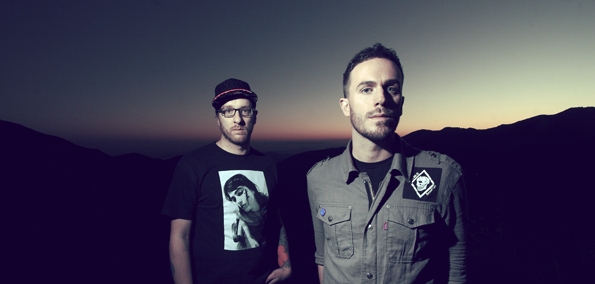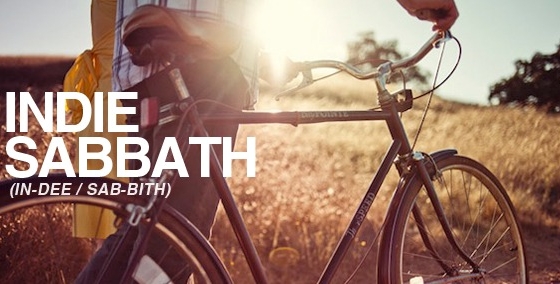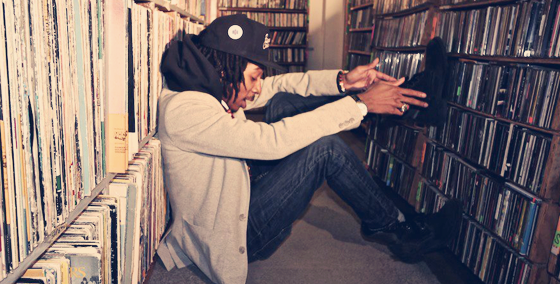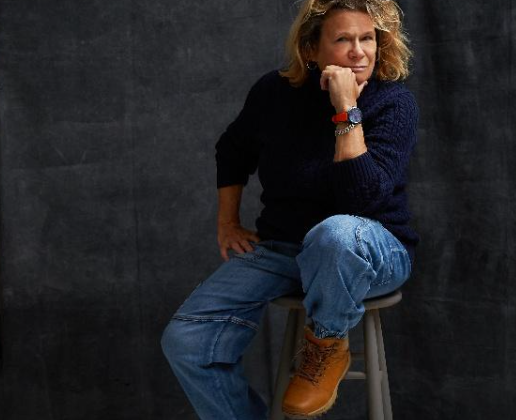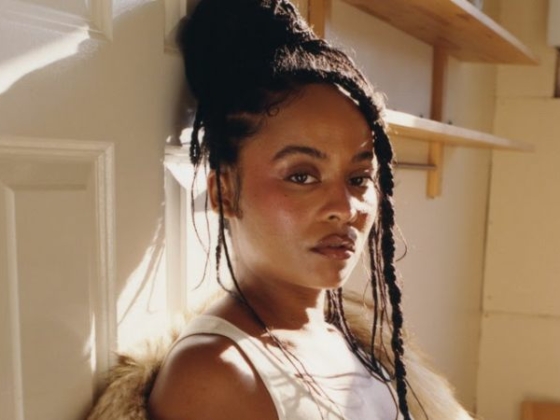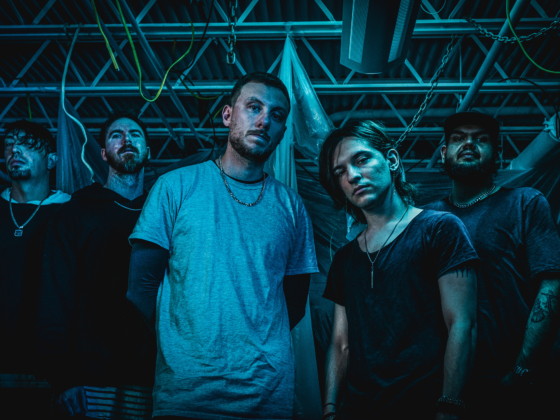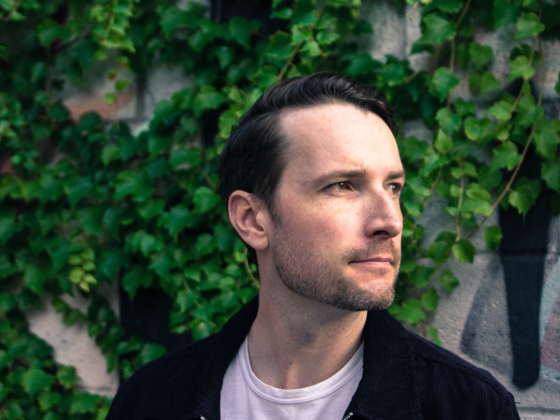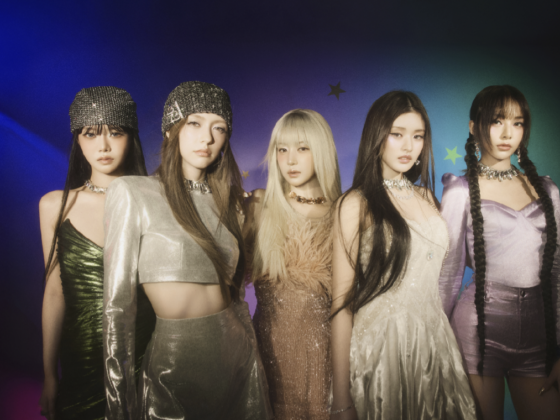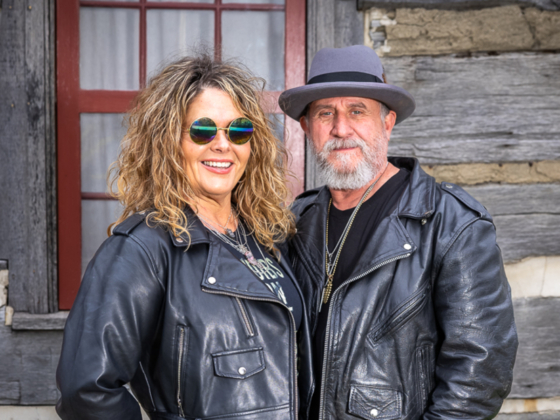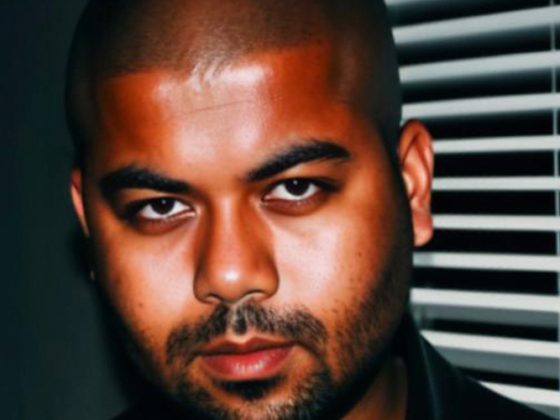It's rainy and it's a Monday and it's probably the last night that you'd expect to deliver one of the city's best dance parties, but in these situations, only the strongest survive, and the strongest made it out to Jokers of the Scene's appearance at Central Square's Middlesex Lounge a week ago. The space may not have been packed to full capacity — and it's safe to say it ought to have been — but those who persevered through the dampness and made their way to Monday night misbehavior were quickly infected. We definitely had to be won over, but it took only moments for the Toronto duo to hypnotize the crowd with their mixed-to-precision techno, and the CVLT-goers lapped it up.
Just before their set, I spoke to them outside (under an overhang, protected from both the moisture outside and the noise inside — I'd briefly considered doing the interview in the bathroom, but there's no class in that) about the music scenes of Canada, the evolution of their own work, the narrative aspect of their DJ sets and productions, their punk and DIY influences, and their take on the current state of dance music.
[soundcloud url="https://api.soundcloud.com/tracks/33091246" params="show_comments=false&auto_play=false&color=000000" width="100%" height="81" iframe="false" /]
Photos by Adrienne Berlin.
EARMILK: I was just saying that I was in Montreal for Mutek, so I'm curious, what do you guys think of the Canadian music scene, what's going on there and what cities are thriving? I honestly don't know much about it.
Linus Booth: We've always had an awesome music scene, but the locale is always shifting. Vancouver was big for a moment, Halifax, then Montreal, and now it's Toronto. And happily, Toronto is home for the moment, so that's been good for us, a lot of peers, a lot of inspiration, being at home feels really good these days.
Chris Macintyre: There's no doubt that Toronto has the strongest underground dance music community in Canada now, in terms of who's making music there. I'm not 100% sure if it's always appreciated, but it's definitely resonating right now on a global scale. And Canada, like Linus was saying, has always been a beacon for underground music, especially when you consider how many people live in Canada and the wide variety of talent here. It's a pretty good ratio. We're proud to be from Canada, and be part of such a community. The thing about the Toronto community as well is that we're all friends and we all work together in different ways, we play shows together and experiment together. It's really nice to be part of a scene that supports one other. We've observed other scenes and communities that are more competitive. It's not really like that in Toronto right now. At least from the creative side — of course you've got promoter wars, where everyone's trying to do the biggest event, but when it comes to the people actually creating things, everyone's pretty harmonious and collaborative and supportive. It's nice, it's not that common to see and we really appreciate it.

EM: Who are some of the artists who've come out of or are coming out of Toronto now who are innovating?
CM: Well there's the obvious ones that we've seen over the last year or two such as Azari & III, Art Department, etc. Now there's this new wave, with artists such as Kevin McPhee and Nautiluss. And there's of course so many others, lots of new talent emerging.
LB: A variety of people that have known each other for so long and everybody's having their moment, and that's nice to see, that it fluctuates, and everybody remains friends. You don't always see that on a local level.
CM: And it also feels like a lot of these artists are evolving, if you take someone like Nautiluss for example, who used to be part of Thunderheist, which is a very different thing, he's been been able to re-invent and evolve. And even the MSTRKRFT guys, to a certain degree, wanting to go in a new direction. Kenny Glasgow, who was a legendary techno DJ from Toronto back in the 90s, now a part of the Art Department thing.
LB: Also The My Favorite Robot crew, those guys are doing super well as well.
CM: You see a lot of longevity with a lot of the artists there. They just keep going and evolve in different ways.
EM: And how would you say you guys have evolved over the course of your career?
CM: We've always been an ever-evolving thing. We're five records in with Fool's Gold and they've all been really different from one another. And that's not necessarily a conscious thing, I think that we're just always into different things and challenging ourselves more than trying to challenge others.
LB: We've just tried to be honest with ourselves and make, listen and play what we want at the time and whether it happens to be trendy or not.
CM: I think that once we make something, we want to let it be, move forward, and discover new territory.
LB: But I don't even think that's conscious. I don't think we ever say, okay, now we need to do something different. It just moves. We have short attention spans. [laughs] And we like such a wide variety of music that different things are inspiring us at every time, so musically that shows.
EM: What's inspiring you right now?
CM: A lot of things in and outside of music. It's not just music, and certainly not just dance music. We've been perceived lately as being more influenced by film soundtrack type stuff, or mood music. Something that maybe evokes some sort of visual response.
LB: Things that challenge us — simpler things at the moment. We don't feel the need to be as brooding or ominous these days. Let's write some simple pop songs. Composition and songwriting have always been part of what we do and we've been focusing on that even moreso.
CM: We've always both been into such a wide array of music. It's for the most part outside of dance music. I still go back to the things that I loved when I was young. I'm a big Prince fan, we're both big metal fans, we really like ambient music, soundtracks, we love techno music of course, which is perhaps the backbone we do. Pop music, rap, whatever. It can be anything. And I feel like because we're open to so many things, it's a different approach or setting every time we enter the studio.
LB: And club music is still the vehicle for how we express ourselves musically, so we take all that, and use it as inspiration for the dance floor.
[soundcloud url="https://api.soundcloud.com/tracks/38860300" params="show_comments=false&auto_play=false&color=000000" width="100%" height="81" iframe="false" /]
EM: How do DJing and producing differ and play together for you?
LB: Definitely two separate things. When we write in the studio, we're writing for no one but ourselves. We can be completely gratuitous and make the music we want to hear. We approach DJing the same way but still have to be conscious of your audience and deliver what makes most sense for the event.
CM: I think if anything the similarity between what we do when we produce music and DJ is that we like a body or array of music, things that shift and have a narrative or tell some sort of story. We definitely do that in our DJ sets, and we've really been more turned on into doing that with our releases. Our most recent release, J0T5, is a concept piece that was designed to be listened to as a whole, rather than just as individual tracks. We both feel most people don't listen that way anymore, and I've always felt it to be a much more rewarding experience with far more depth and complexity.
LB: The narrative definitely ties both together, and when we're in the studio, it's our narrative. In a live setting, we're still telling a story, but there are other people involved.
CM: I think there's always been an unintentional air of unpredictability with what we do. We've learned to allow it to unfold in different ways while we're experimenting in the studio the same way we do when we're DJing. We never come to a DJ set knowing what we're going to play.
LB: It's still our story but we're looking at and reading our audience for the evening, and yeah, that's never repeated.
EM: Are there any particular mixes or sets you've done in the past that stood out for you as some of your absolute favorites?
CM: Definitely. We did an art collaboration with a visual artist who programmed the lights on the CN Tower for a a Nuit Blanche installation in Toronto a couple years ago, and that involved us curating a soundtrack for it. Working in a specific context but really out of the box is always really exciting for us, and something that I think we go back to listen to and enjoy. And in terms of playing live, each night we usually surprise ourselves and each other, and we really get off on that kind of experience. It keeps it fresh. I think also, doing this for nearly ten years together in one way or another, we don't really stress too much about what we're going to do anymore. It's a bit more second nature, where we just start to play. We'd rather submit to it and experience it for the first time with the audience. I feel that's always made for greater DJ sets, when I hear something that I've never heard before and I might not ever hear again. It makes it a much more memorable experience and far more special. We strive for that.
LB: The longer ones are definitely our favorites, because if you're in three or four hours, at that point, you have nothing to lose. You can give them anything.
CM: That's definitely the sweet spot in a DJ set for us, when you get to that three-hour mark. But you don't see that much anymore, partially because of the current festival culture, DJs often only get to play for one hour now, so you often see them just jamming in as many songs as they can and playing this peak of this song into this peak of this song and so on and so forth.
LB: We struggle in those environments.
CM: That's not really our thing. It's uninteresting to us to do the same thing every time, so when you get to that three hour point, where you've really been carving something out and patiently letting the vibe build and evolve, that's when people really start to submit to what you're doing. And we've had that experience a lot more in places like Europe, where it's more acceptable to play a lot longer, and the club night goes until the morning. I think that's where we really thrive.
EM: Who else would you say is doing cool things right now, where do you think there are hotbeds right now or scenes that are really thriving?
CM: I think there are still a lot of regional scenes that, when it comes from the underground, really influence things. Things are far more radical at that level, and more forward-thinking. Nowadays you see these different movements come and go every week. I feel like every day there's a different genre of dance music that's coined, often unnecessarily. For me, the people who are sticking to what they do and are tied to themselves rather than a trend – that's the most interesting stuff that transcends.
LB: Yeah, the people that are honest, that aren't worried about what's going on around them and are just doing their thing.


